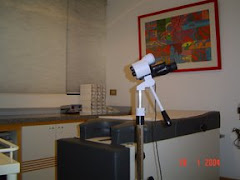

A migração dos implantes de braquiterapia, pode colocar o paciente em risco de recorrência do câncer de próstata. O estudo de um caso de um paciente de 64 anos que apresentava tumor nos dois lobos da próstata e foi submetido a um implante de sementes de iodo-125 numa sessão única com intenção curativa, mostrou boa resposta no início, com queda importante nos níveis de PSA. Porém, dois anos após com o aumento dos níveis de PSA e nova biópsia confirmando Adenocarcinoma de Próstata, partiu-se para uma pesquisa que confirmou migração dos implantes para a região da musculatura do esfincter anal.
Veja artigo na íntegra publicado na Medwire News:
"Seed migration may allow prostate cancer recurrence"
by Lynda Williams
Brachytherapy seed migration may place men at risk of recurrent prostate cancer, a case report published in the journal Prostate Cancer and Prostatic Diseases suggests.
The study describes the management and outcome of a 64-year-old patient with a palpable lesion in both prostate cancer lobes who underwent iodine125 brachytherapy monotherapy with curative intent.
Within a month of treatment, the man's prostate-specific antigen (PSA) level fell from 9 ng/ml to 1.2 ng/ml and reached a nadir of 0.5 ng/ml after 7 months, say lead author Mauro Gacci and team from the University of Florence in Italy.
However, after 2 years of follow-up, the patient's PSA level increased to 18.7 ng/ml and he was found to have a Gleason score 8 prostate cancer concentrated in the right prostatic base.
The patient showed no evidence of metastases and underwent radical prostatectomy with lymph node dissection. One year after surgery, his PSA level was 0.01 ng/ml.
Of note, seeds were identified in the patient's anus muscle and fat tissue, and radiology studies of the prostate revealed that no seeds were present in the right base of the prostate.
Acknowledging that fluoroscopy and dosimetry studies had demonstrated correct seed placement 4 weeks after the procedure, the researchers say that "seed migration from the right base of the prostate was the main cause of tumor relapse in this area, and consequent PSA progression."
They add: "The following PSA remission confirmed the initial correct positioning of the seeds."
by Lynda Williams
Brachytherapy seed migration may place men at risk of recurrent prostate cancer, a case report published in the journal Prostate Cancer and Prostatic Diseases suggests.
The study describes the management and outcome of a 64-year-old patient with a palpable lesion in both prostate cancer lobes who underwent iodine125 brachytherapy monotherapy with curative intent.
Within a month of treatment, the man's prostate-specific antigen (PSA) level fell from 9 ng/ml to 1.2 ng/ml and reached a nadir of 0.5 ng/ml after 7 months, say lead author Mauro Gacci and team from the University of Florence in Italy.
However, after 2 years of follow-up, the patient's PSA level increased to 18.7 ng/ml and he was found to have a Gleason score 8 prostate cancer concentrated in the right prostatic base.
The patient showed no evidence of metastases and underwent radical prostatectomy with lymph node dissection. One year after surgery, his PSA level was 0.01 ng/ml.
Of note, seeds were identified in the patient's anus muscle and fat tissue, and radiology studies of the prostate revealed that no seeds were present in the right base of the prostate.
Acknowledging that fluoroscopy and dosimetry studies had demonstrated correct seed placement 4 weeks after the procedure, the researchers say that "seed migration from the right base of the prostate was the main cause of tumor relapse in this area, and consequent PSA progression."
They add: "The following PSA remission confirmed the initial correct positioning of the seeds."











Nenhum comentário:
Postar um comentário